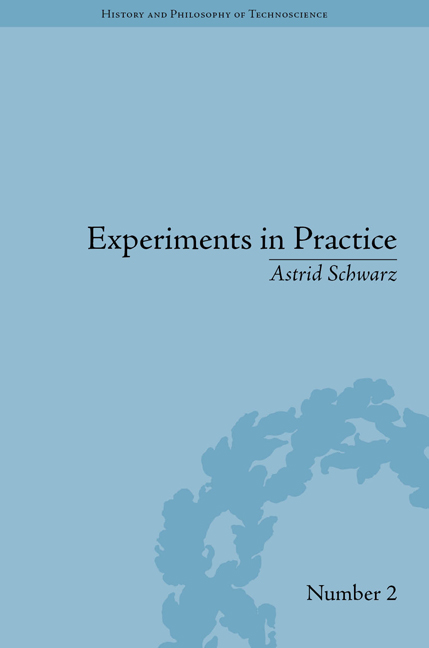Book contents
- Frontmatter
- CONTENTS
- List of Figures
- Introduction: Towards an Experimental Mode in Science, Society and Philosophy
- Part I Questioning the Scientific Method
- Part II Different Modes of Experimentation
- 4 The Experiment in Recent Philosophy of Science
- 5 Experimentation in Lab and Field
- 6 Exploring the Field Ideal
- Part III Tirelessly Tinkering with Unruly Conditions
- Part IV Practising Experiments in a World of Environmental Concerns
- Conclusion: Experiments in Practice – the Work of Experiments
- Notes
- Works Cited
- Index
4 - The Experiment in Recent Philosophy of Science
from Part II - Different Modes of Experimentation
- Frontmatter
- CONTENTS
- List of Figures
- Introduction: Towards an Experimental Mode in Science, Society and Philosophy
- Part I Questioning the Scientific Method
- Part II Different Modes of Experimentation
- 4 The Experiment in Recent Philosophy of Science
- 5 Experimentation in Lab and Field
- 6 Exploring the Field Ideal
- Part III Tirelessly Tinkering with Unruly Conditions
- Part IV Practising Experiments in a World of Environmental Concerns
- Conclusion: Experiments in Practice – the Work of Experiments
- Notes
- Works Cited
- Index
Summary
In the twentieth century, experimentation became a focus of interest for philosophers of science from only the 1980s onwards, when they began to pay attention to the role of scientific practices in knowledge building rather than dealing solely with theories and purely logical operations. Ian Hacking's Representing and Intervening (1983) is regarded as the first and most influential book that highlights the significance of experiments: ‘Experimentation has a life of its own’. During a conference at the MPI Berlin in June 2005 on ‘The Shape of Experiment’, Hacking himself referred to the fact that many voices came ‘to the fore in the 1980s, urging that we think about experiment as intensely as we had been thinking about theorizing. Mine only happened to be an early contribution’. However, in chapter 9 of his above mentioned book, entitled ‘Experiment’, Hacking starts with a bold statement about the blind spot afflicting philosophers of science who ‘constantly discuss theories and representations of reality, but say almost nothing about experiment, technology, or the use of knowledge to alter the world’. A few pages later, he continues:
What is scientific method? Is it the experimental method? The question is wrongly posed. Why should there be the method of science? … We should not expect something as motley as the growth of knowledge to be strapped to one methodology.
- Type
- Chapter
- Information
- Experiments in Practice , pp. 67 - 78Publisher: Pickering & ChattoFirst published in: 2014

